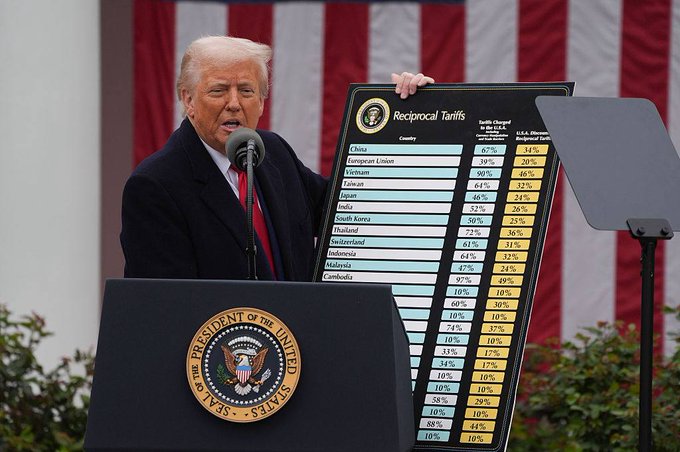In a surprising move that has sent shockwaves across multiple countries, President Trump has announced new tariffs on a range of nations.
The tariffs vary, with a 20% levy on the Philippines and escalating to 30% on several African nations including Algeria, Iraq, and Libya.
This decision is set to have significant repercussions on the global economic landscape, particularly affecting trade relations between the United States and these targeted countries..
The imposition of these tariffs comes amidst ongoing trade tensions between the United States and various nations worldwide.
The move is seen as part of President Trump’s protectionist trade policies aimed at boosting domestic industries and reducing trade deficits.
The countries targeted by these new tariffs are likely to respond with countermeasures, setting the stage for a potential trade war that could have far-reaching consequences for global commerce..
For African nations like Algeria, Iraq, and Libya, which heavily rely on exports to the United States, these new tariffs pose a serious threat to their economies.
The increased costs of exporting goods to the U.S.
could lead to a decline in trade volume and revenue, impacting jobs and economic growth in these countries.
Furthermore, the tariffs may strain diplomatic relations between the U.S.
and these African nations, potentially complicating future negotiations and cooperation on various fronts..
As the affected countries assess the implications of these tariffs and consider their response strategies, the future outlook remains uncertain.
African leaders are likely to explore diplomatic channels to address these trade barriers and seek alternative markets to mitigate the impact of reduced access to the U.S.
market.
The repercussions of these tariffs on the African economy and global trade dynamics are yet to fully unfold, raising concerns about the broader implications of escalating trade tensions in the international arena..









Leave feedback about this